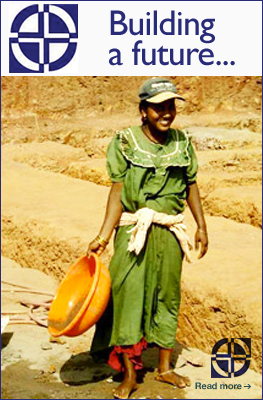About Interlock Charitable Trust
Interlock Charitable Trust is a British registered charity (Registered Charity Number: 276967) that exists to facilitate sustainable development solutions to poverty-related issues within rural communities. All of them are local initiatives, driven and managed by locally elected representatives.
Interlock uses the internationally recognised indirect measures of human poverty as the basic criteria for selecting projects and communities for support. Human poverty is defined by the United Nations Development Programme (UNDP) in terms of lack in basic human capabilities i.e. illiteracy, malnutrition, abbreviated life span, poor maternal health and illness from preventable diseases. The indirect measures of human poverty are seen as a lack of access to goods, services and infrastructure – energy, sanitation, education, communication and drinking water – all necessary to sustain human capabilities.
The projects supported by Interlock are broad in their spectrum but all with the similar objective of supporting sustainable development within rurally deprived areas to overcome the problems of poverty and migration to the Urban.
All communities selected for support are assessed as being below the human poverty index and not yet benefiting from the Indian Government’s own efforts to address poverty reduction. On average more than 90% of the families within each of the communities supported by Interlock are more than 95% below the humanpoverty index. Their poverty and the problems they face are extreme.
The project funding sourced by Interlock and the local communities comes from a wide variety of sources: one-off individual and commercial donations, one-off and long-term service and material gifts-in-kind, sponsorship and grants. In the first instance funding, services and material for all theprojects are always sought at a local level. Interlock will then sourceany shortfall from state, national and then international support where necessary. It is hoped as all the projects develop that a community’s increased capacity to trade commercially will also provide an additional source of funding for ongoing development.
Emulating the criteria for project funding from the Indian Government and to allow them to take advantage of this financial support at a later stage, all communities are asked by Interlock to source for themselves a minimum of 10% of the initial projects costs. This is because Interlock believes that the empowermentof a community lies predominantly in the freedom of choice and the ability to plan for themselves, with supplementary assistance provided where expertise is missing. Not only does it avoid loss of face by minimising imposition of charitable handouts, Interlock has also noted that self-governance revokes promotes community empowerment through a sense of project ownership and accountability within a community.
Interlock’s role in all its projects is very much as a facilitator to sustainable development. It supports, guides and encourages a community in its own decision-making during thedecisions it makes on the project plan, the specification, the construction methods, costing and scheduling. The end-sense of achievement and lessons learnt during this have been seen to develop within a community a sense of pride in the on-going management of the new service and/or facility.
By focusing on the poor and linking poverty reduction to grassroots governance, Interlock’s projects allow the poor to organise themselves through self-accountability, self-management and decentralisation. The result has been a resounding success and poverty within seriously deprived areas has been reduced.



